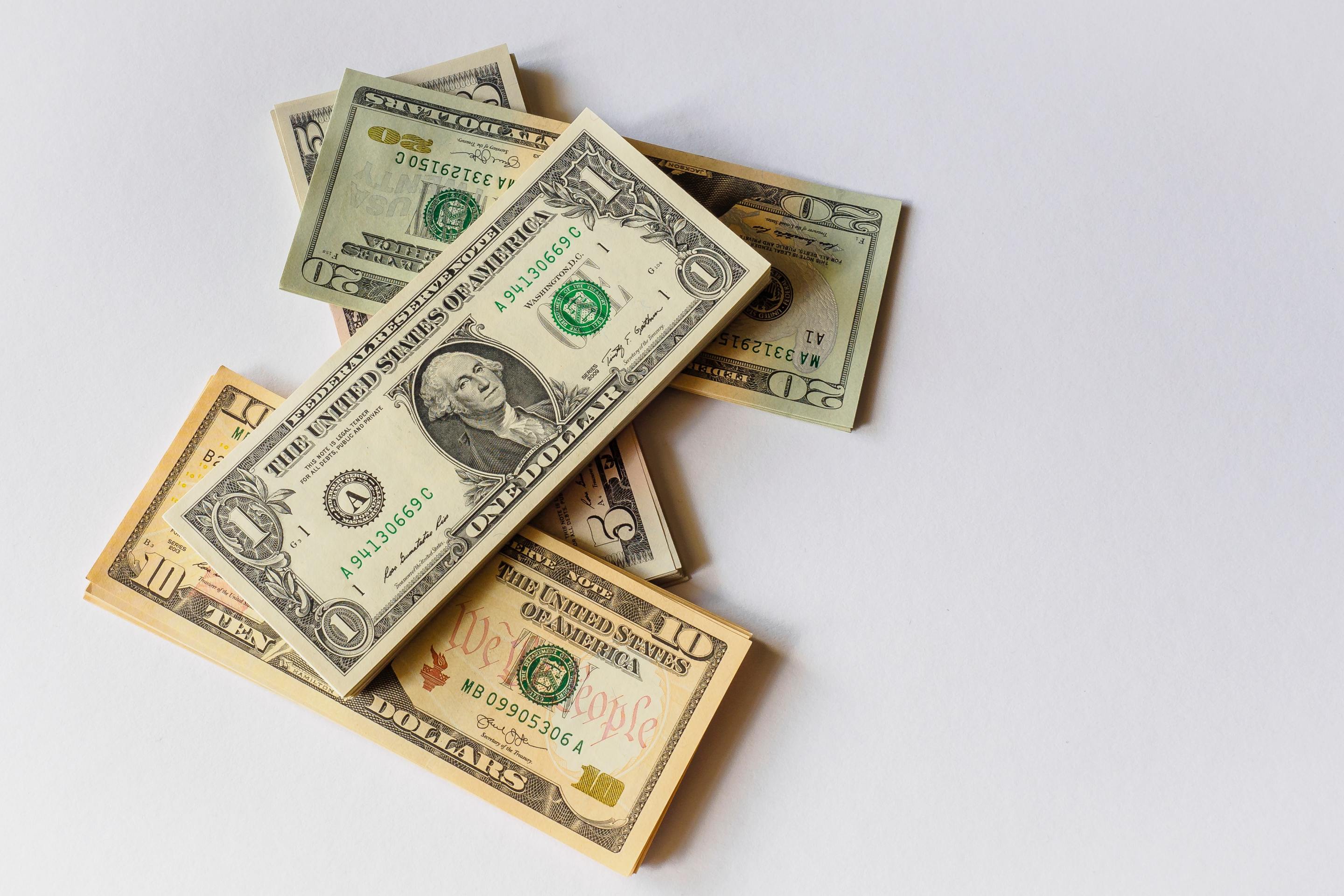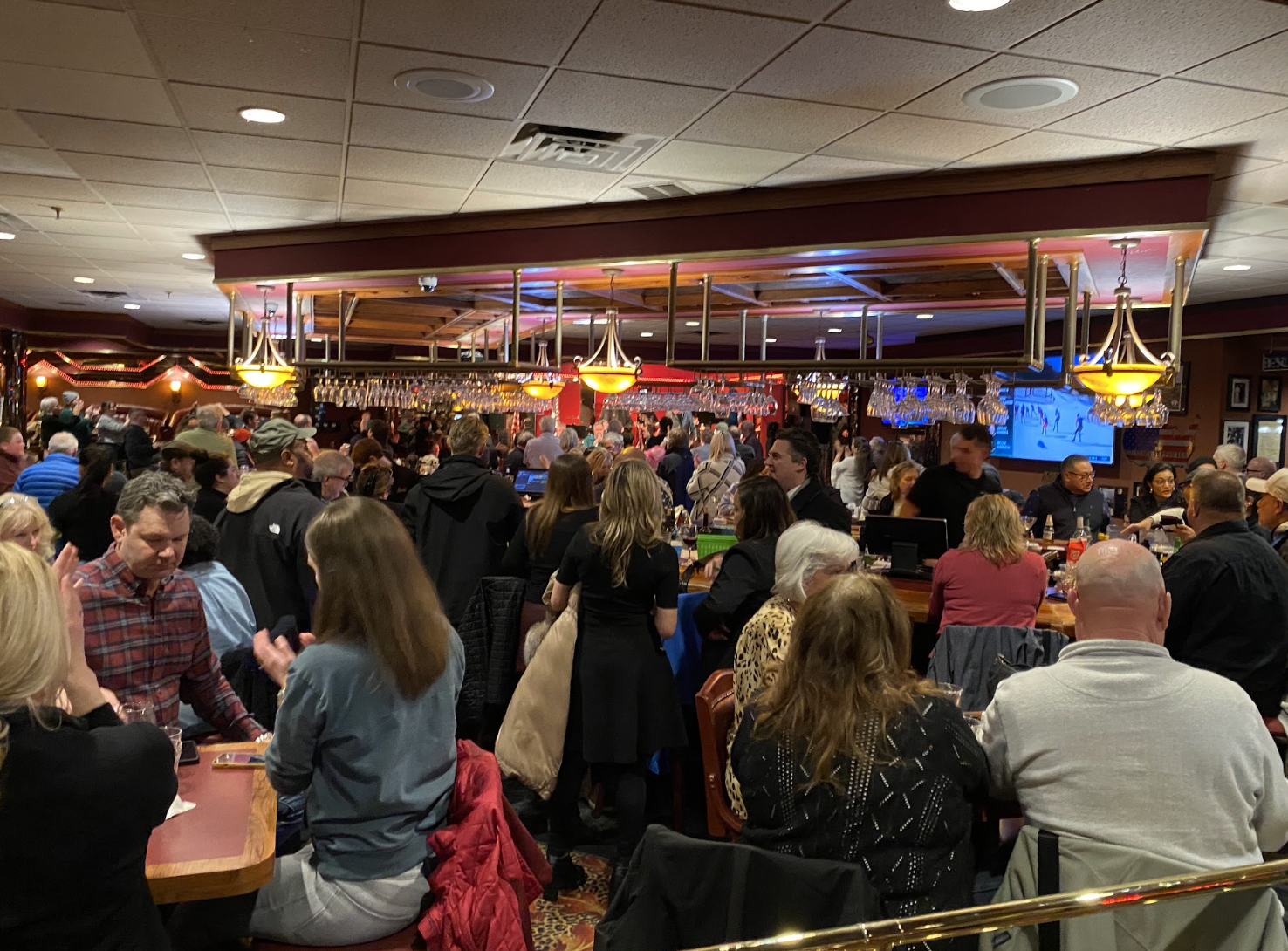Welcome to Racket’s new Money Journal series, where you can snoop on the finances of an anonymous Twin Cities neighbor. Interested in submitting your own? Email jay@racketmn.com for instructions on over-sharing the monetary details of your life! H/T to Refinery29 for pioneering a tremendous concept that we’re excited to localize.
Personal Info
Job: Principal Portfolio Manager
Age: 38
Neighborhood: Audubon Park (NE Minneapolis)
Education: Bachelor’s Degree
Salary: $120,000 + 10-15% year-end bonus
Partner’s salary: $83,000
Total non-401K/403b/Roth Savings: About $45K
Estimated net worth: About $1.5M
Quick breakdown
- ~$350K in retirement savings between two people
- ~$950K in Real Estate equity ($400K in personal home and cabin, $550k in rental properties)
- ~$86K in our investment portfolio
- Balance of net worth in combination of cash on hand and hard assets like cars, antiques, and other high-value items
Home
Build: 1965
Style: Rambler
Purchase Price: 259K (appraised value of about $450K now)
Purchase Date: September, 2015
Automobiles
We don’t believe in auto loans, so all these were purchased outright.
2019 BMW i3 Full electric (purchased for $23K in 2021)
2017 Lexus es300h Hybrid (purchased for $22K in 2022)
2012 F150 (purchased for $10K in 2020)
1985 Jeep CJ7 (Purchased for $8800 in 2020)
1990 Corvette (Purchased for $10K in 2012)
Debt
Student Loans: None currently. When I graduated I had $88K in debt, almost all of which was private loans. For 11 years after graduation (2006-2017) I paid over $800/mo until I finally made a small lump-sum payment to pay it all off. Throughout this time I never made more than $70K/yr and made many sacrifices to live within my means including living in my friends' basement for years and then living in a very modest home.
Personal Loans: None. I do have an open HELOC (Home Equity Line of Credit), however it has zero balance and is for emergencies.
Mortgage: $190,390 remaining on a 15-year loan at 2.375%
Monthly Expenses
Paycheck amount
- Her: $4,464/mo
- Him: $5,866/mo
- Total: $10,330/mo
Rent/mortgage: $2,063.47 (This includes insurance, taxes, principal, and interest)
Utilities
- Internet: $60 to Comcast
- Electricity: $0 – We have a full-offset solar array
- Gas: yearly average of about $50/mo
- Water/trash: $106
Insurance
Health: $320/mo for two people, pretax (accounted for in the paycheck above)
Dental: $32/mo for two people, pretax
Car Insurance: $425/mo (this is for all the cars, an umbrella policy, and a few motorbikes)
401K/retirement:
- 12% for him + 8% company match
- 12% breakdown - $922/mo for 401K + $184/mo for Roth IRA
- 12% for her + 5% company match
Phone: $167/mo (His, hers, and my mothers)
Car
- No loans
- Licensing costs by month it would be about $60
- Gas about $50 as one car is a hybrid and one full electric. One of us is 100% work from home and the other is 60%, so not much gas use
- Maintenance ~$40/mo as I do 100% of the work myself and can buy parts at cost
Charitable Giving
- The Lift Garage: $65/mo
- Aeon: $25/mo
- MN Coalition for the Homeless: $15/mo
Subscriptions (cost per month)
- News: Racket! ($8.33), NYT ($8), WaPo ($8.33), MN Reformer, States Newsroom ($15), The Atlantic ($5)
- Streaming: HBO ($13.50), Hulu ($14), Netflix ($21.59), Prime ($10), Sirius XM ($8)
- Other: Patreon ($5/mo to my favorite YouTuber), carwash ($24)
We generally live well below our means; even if it seems like a lot of expenses up there they don’t add up to that much. After it’s all said and done we add about $3K/mo to our savings. Neither of us go out to many fancy dinners or have expensive hobbies or tastes which saves us a ton. We also don’t drink a ton and almost never out which is a huge way to save money. Also, since I handle many of the maintenance tasks myself in terms of the house and car it saves a significant amount there. I know housing costs are very high now, however we bought before the market exploded and got a very low rate so our housing costs are generally lower than other friends of ours.
Final note: You may have noticed the rental properties in the “net worth” section. Although we do make some net income from those properties, that money is kept in a separate account and the properties are managed under their own LLC. This is not money that we use to supplement our income and is used strictly for investment within those properties.
Money Talk Q&A
Did your family talk about money growing up?
Not really... I grew up very poor, so there wasn’t much to talk about. I almost never received birthday or holiday gifts as we simply couldn’t afford them. I was also friends with other less fortunate kids, so I didn’t realize how little we had at the time. I knew most people weren’t on food stamps and government assistance like us, but I didn’t process it until later in life. I did have a great influence starting around the age of 10 that taught me by example. He was a millionaire in the '90s, but drove an old pickup truck, wore tattered clothes, and lived a simple lifestyle. He imparted the principal that you should do what makes you happy and not what impresses others. He used his wealth to acquire land for restoration purposes and live a debt-free lifestyle. This has resonated with me to this day in how I look at financial management and how I plan for my future and larger purchases. I save for all major purchases and only buy what I can afford. I also don’t wear fancy clothes or go to fancy dinners, or treat myself basically ever. Why eat away all your money?
Did you worry about money growing up?
No. Like I mentioned before, I didn’t realize all the support we received from others that kept a roof over our head and food in my stomach. I can never be thankful enough for all those generous organizations and what we have of a government support network. In retrospect I am thankful that my mom shielded me from the worries I am sure she had to impart less stress upon me about money matters.
At what age did you become financially independent?
Kinda depends on exactly how you define this. I started working at the local grocery store at age 14 so I could buy toys and candy. I worked an average of 20-24 hours a week through high school to buy my first car, pay insurance and gas, and go out with friends. Also starting in HS I used more of my money for family purchases. A new TV, a special thing for my mom, etc. I still had the benefit of having a roof over my head so I am not sure if that counts or not. When I turned 18 and went to university I then became 100% independent. Nowadays that is starting to go more in reverse. I cover my mom’s cell phone bill and recently used the hiring bonus I received from a new job to pay for a down payment on a condo for her to live in. So, now she finally has a place she owns with more consistent expenses to help her manage her fixed budget better.
How did you learn how to budget your life?
As you may have been able to tell from the breakout above, I am very detail orientated. I started using spreadsheets in college to manage my finances. I wouldn’t say anyone specifically taught me, but I realized the importance of spending within and below your means when I was pretty young. I parlayed that into creating a budget and intrinsically knowing my spending limits. I certainly don’t budget down to every dollar I spend, but do track my income, and every regular and major expense, so I have an idea of how much I’ll have left at the end of the month. I do include things like travel in my budget ($400/mo) and other potential spends so I mentally allocate it and don’t think about spending it. I recently had to complete a Personal Financial statement for a new loan and it was very helpful. They required you to detail out everything, like a budget on steroids. Completing this helped me really realize where my money was (i.e. assets) and where it was going. It took forever to complete, but I’d definitely recommend that people make a comprehensive budget or financial statement at least once a year to use as a baseline for their budget and spending habits.
Have you ever received inherited income, major financial gifts, or large insurance payouts?
Nope.
Do you worry about money now?
Not really, no. Since we live well below our means we’ve accumulated a nice safety net and have other stop-gap measures in place if something drastic were to happen. I would say that we still watch our spending and confer on all purchases over $150 or so but it’s so rare purchases like that happen that the conversations are few and far between.
How much do you think a person or household needs to earn to live comfortably in the Twin Cities?
This is a bit of a loaded question I feel. It really depends on the “lifestyle” you want to have. I know people that have no complaints making $50K a year in Minneapolis and living with roommates in their 30s. Others I know are making $150K a year and living paycheck to paycheck. As a general guideline, I’d say around $60-70K for a single person living in a non-luxury apartment and $90-100K/yr for a family. Can you live off of less? Absolutely, but I feel that’s the tipping point to feel comfortable vs stressed about finances.
Any advice you’d give to others that’s helped you?
Always watch the spend side of your finances. I think about this all the time when I buy basically anything. Do you need the larger size coffee? Do you need another drink? Can I find that used? By thinking about all those purchases, even the little ones, you can start to evaluate how to cut how much you spend. I recently bought a set of used tires that had 90% tread and were half the price. That’s $300 I saved with no real impact to my life. There are many options in life and many times the easiest path isn’t the cheapest.
Day 1
10:15 am: Got some bloodwork, a flu shot, and my bivalent booster. No cost with my insurance.
11:30 am: Last week I ordered 6,000 Pesos for an upcoming trip to Mexico, and my bank called and said they were ready to be picked up. ($322.39)
6:00 pm: Ordered some parts for a motorcycle project I am working on. ($159)
I work from home so most of my meals I make and eat in my own kitchen. I also had a nice night in, so that’s it for this day!
Total: $481.39
Day 2
11:30 a.m.: Made a run for the border (aka Taco Bell) ($7)
Stayed in that night and just had some guy time with the cats which is obviously priceless!
Total: $7
Day 3
11 a.m.: Ran to the auto parts store over lunch to grab a few things ($14.27)
5:45 p.m.: Stopped at Taco Bell for dinner ($2.16)
6 p.m.: Trivia night! I limit myself to a max of two beers every week ($16.26)
Total: $32.69
Day 4
6 p.m.: Cruised down to The Riverview Theater for a movie with my friend C. I completely forgot they were cash only and she covered the ticket, popcorn, candy, and drinks. I OWE HER BIG.
Total: $0* I will pay back C. somehow, even if she insists I don’t have to.
Day 5
4 p.m.: Went to Home Depot and bought a new faucet for one of my rental units ($119)
5 p.m.: Went to Menards to buy a thermostat and batteries for same rental as above ($22)
7 p.m.: Bought some silicone license plate backers to stop the annoying rattle ($13)
8 p.m.: Bought two “leadership” books, used on eBay, that my Vice President recommended ($11.20)
Total: $165.20
Day 6
9 a.m.: My friend is in town for a work trip and has this day (Saturday) free before his flight back. We grab coffee first then plan to go to breakfast; he pays for coffee ($0)
10:30 a.m.: Chimborazo for brunch, it was amazing. ($22.49)
5:30 p.m.: Dinner with a couple friend of ours. While we aren’t looking he sneakily pays the tab for the whole table. I don’t feel terrible as they make much more than us and I know it’s their way of saying thanks for being friends. ($0)
Total: $22.49
Day 7
11 a.m.: Meet up with some fellow motorcyclists at Up Coffee and get a black tea ($4.21)
12:15 p.m.: Arrive at Big Woods Brewery after a cold ride to grab a beer ($8.50)
1:00 p.m.: Lunch in White Bear Lake ($20.91)
6:30 p.m.: Ran to Target to get Halloween candy ($38)
After getting home around 3 p.m., I stayed in and cleaned as well as doing some electrical work. I added a switch for some lights in the basement that were pull string. I had all the materials and luminaire from another project so no cost, just about two hours in time between the two switches.
Total: $71.62
Weekly total: $780.32
I’d say this was a pretty average week, besides the purchase of foreign currency! In the weeks that I/we go out to eat it’s usually very modest. Also, we’re well-stocked on groceries and mostly took the electric car which doesn’t really have a cost with the solar system we have installed. I am not one to make spontaneous purchases on Amazon or Target either so those don’t generally come up. I also generally try and go to places that have great HH deals if I go out or invite people to come to my house where I can better control costs of hanging out with people. I also generally have a few drinks at home each night, but that’s usually out of a box of wine so the cost per glass is pretty low.
Many people may ask how I was able to purchase multiple properties while some my age don’t own their own home. I would honestly just say it was timing, luck, and lack financial standards that used to prevail. I was able to buy my first rental right after graduation using a “stated income” and 0% down. This is exactly the type of practices that led to the housing crash. The next house I bought was condemned and boarded. I spent a year renovating it myself and lived there for nine years before buying the home I have now. I was able to buy two more rentals and a cabin while the market was still “normal.” I am not sure this could be replicated now to the same extent. My plan has always been to use the real estate to eventually supplement my regular retirement savings as I know social security will not be present in 30 years when I retire. I may also use some of the income produced to live off of one day and allow me to be more flexible with my career choices, but that’s not in the cards anytime soon.
In closing, I just want to say I really think projects/articles like these are really valuable. I believe in financial transparency, wage equality, and sharing of financial tips and tricks. It’s important to be open so others can learn, challenge themselves and their companies, and hopefully all succeed. I would also like to give thanks to Refinery29 as that’s where I first learned about their efforts to normalize financial conversations.






